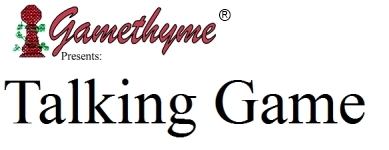We were playing Haggis a few weeks ago, and I was just certain that we'd missed something.
Haggis is a trick-taking card game. I've probably mentioned it before - it's one of the best games you can play with three players, because it was designed to be played by three players.
But I learned that I've been playing it wrong for a while. I'd missed that one rule.
In this case, I'd missed that players who bomb don't collect that trick - they choose an opponent to gather those cards (and the points in there). Every bomb in Haggis is worth points, too.
It got me thinking about all of the other times I'd missed just one rule that changed the tone of a game. In Modern Art, for example, the first few times we played, every artist was worth the amount of money showing in their column, instead of only the top three finishers being worth the money showing in their column. It meant that there was a lot more money floating around in later rounds and we kept running out of money in the bank.
When you discover a rules error mid-game, there are only three real options for what to do about it, and they each have their own strengths and weaknesses.
Option One: Play It As It Lies
This is the easiest. Just ... finish the game with the incorrect rule(s) and fix it the next time you play. The problem with this is that you're not really playing the game as the designer intended. Missing that one critical rule can turn a good game into a terrible experience. Only on very rare occasions does a rules mistake like this improve a game.
Option Two: Finish The Round, Then Fix The Rule
This is changing horses mid-stream. Finishing the round gives everyone the same number of turns with the flawed rules interpretation, but you can really screw players who have built their strategy around a particular error. This can also cause significant swings in terms of final scoring. With Haggis, it's a non-issue - each hand requires you to reconfigure your strategy to begin with. With board games that aren't cleared every round, however, it's a potential issue.
Option Three: Start Over
This is only a good option if you've only just started or if a game is very short. Otherwise, you wind up with (potentially) several hours wasted and nothing to show for it. But with relatively quick games, it's not usually a huge problem.

No comments:
Post a Comment